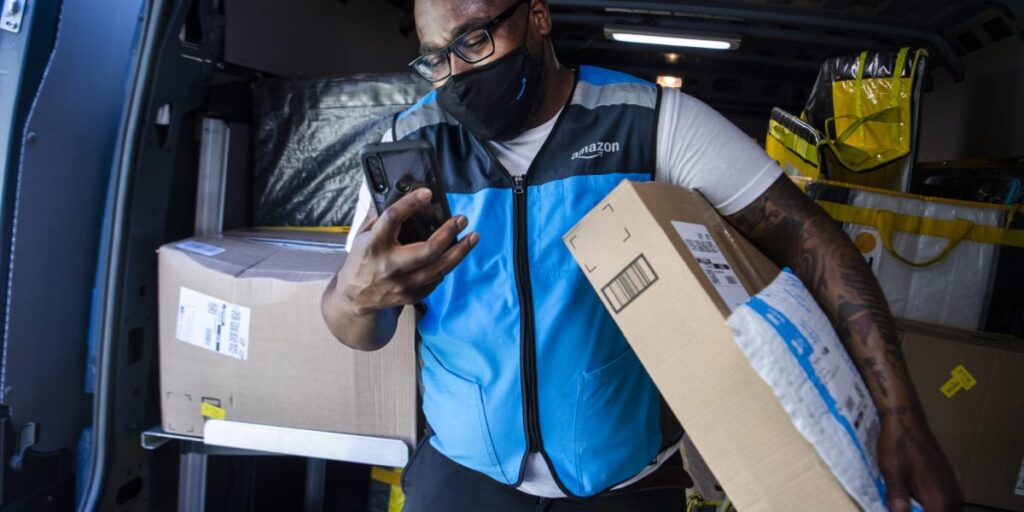
Thousands of delivery drivers filed legal claims against Amazon on Tuesday, accusing the company of classifying them as independent contractors rather than employees, resulting in unpaid wages and other financial losses.
Two law firms spearheading the action said about 15,860 Amazon Flex drivers have filed arbitration claims with the American Arbitration Association, which has litigated 453 similar cases.
Amazon’s Flex program, founded in 2015, contracts drivers to deliver packages using their own cars and a special app.
The company markets the job as a flexible, part-time opportunity that allows people to earn extra income during the hours of their choosing. According to Amazon, most drivers make $18-25 an hour, though their pay may depend on other factors, such as their location and the time it takes to complete a delivery.
The arbitration claims filed Tuesday were brought by drivers in California, Illinois and Massachusetts, all of which have rules limiting the amount of control a company can have over independent contractors. The claims were collected over four years by attorneys Joseph Sellers and Steven Tyndall, who maintain that under current laws in the three states, the drivers should be classified as Amazon employees rather than independent contractors .
Lawyers said the change would allow Flex drivers to collect unpaid wages because Amazon would only pay them for a scheduled number of hours, regardless of how long it takes to complete a delivery. It also allows Flex drivers to receive overtime pay if they work more than 40 hours per week and to be reimbursed for work-related expenses such as gas and vehicle wear and tear.
Tyndall said in an interview that gas and other vehicle costs “are a significant expense for our customers.” He also said one of the customers in the claim worked seven days a week during the holidays to make deliveries for Amazon and was never paid overtime.
Amazon spokesman Branden Baribeau touted the benefits of the Flex program in a prepared statement, saying it gives “individuals the opportunity to set their own schedule and be their own boss while also Earn a competitive salary.
“We’ve heard from the majority of Amazon Flex delivery partners that they love the flexibility of the program, and we’re proud of the work they do on behalf of our customers every day,” Baribeau said.
Tyndall and Sellers said they have been successful in seven of the eight arbitration claims they have brought against Amazon so far. Drivers they represent in these cases receive an average of $9,000 in damages.
Amazon’s workforce-driven business model — which consists of independent contractors and third-party businesses that allow the company to avoid unionization — faces scrutiny and challenges from various quarters.
A bipartisan group of more than 30 U.S. senators sent a letter to Amazon CEO Andy Jassy last week demanding more information about the company’s relationships with thousands of independent businesses. These businesses are part of Amazon’s Delivery Service Partner program and are responsible for millions of deliveries every day.
In March, the Wisconsin Supreme Court upheld a lower court ruling declaring Flex drivers employees, a ruling that would allow them to become part of the state’s unemployment insurance system and be entitled to unemployment benefits if they are fired.
The Teamsters union, which is seeking to organize Amazon drivers, also filed a complaint with the National Labor Relations Board last year questioning how the company classifies some drivers.

